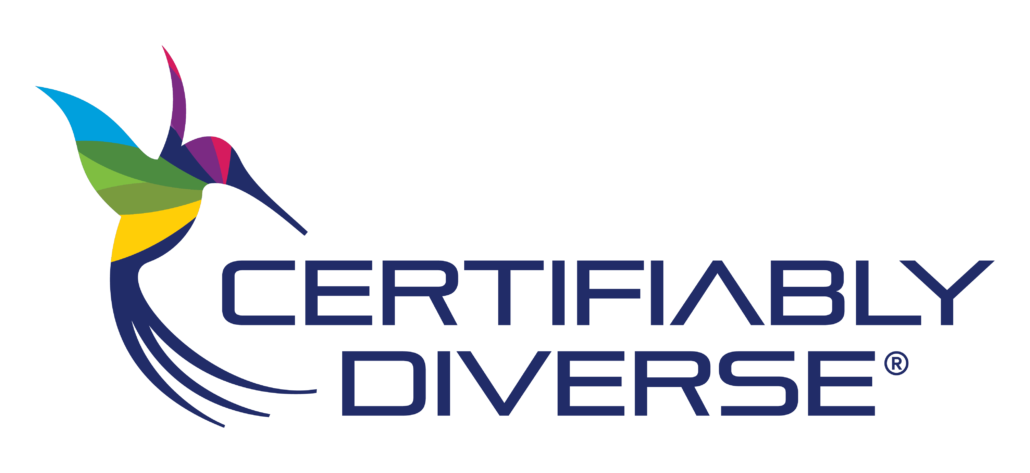Supplier Diversity in 2023 – Now What?
The ongoing discussion about closing the gap on the many disparities that exist in our world has dominated the airwaves in the wake of recent court rulings and political outcomes regarding race and class. The one constant in today’s discourse seems to be division, with voters – and people at large – rigidly divided along ethnic, socioeconomic and political lines. It almost seems that our society determines a person’s worth according to his or her affiliation or identity, having all but abandoned the universal standard of days gone by…character, compassion, empathy, decency, kindness and work ethic. It has caused many of us to question the validity and the attainability of the ‘American Dream’ as the state of our relations continues to disintegrate. What do we do now?
A recent blog post here addressed the concept of ‘diversity fatigue,’ a paradigm where members of the ‘ruling class’ say they have grown weary of our many efforts to mitigate the ugly legacy of racism, sexism and discrimination that has impacted millions of lives for centuries. Having never lived through the effects of these horrors on those they impact, it is easy for some to long for an end to programs, activities and legislation that force us to devote energy to confronting the ugly in our shared history. Engaging these ills puts a spotlight on behaviors and decisions, throughout history, that may make some uncomfortable, a place no one wants to be.
 But if we are to continue to pursue the uniquely American ideal of life, liberty and the pursuit of happiness, we must soldier on in searching for ways to level the field of opportunity for all, which demands that we take extraordinary measures to help the traditionally disadvantaged among us catch up. One need only look at the laws, privileges, customs and conditions at the time to understand that when our Founding Fathers wrote ‘all men are created equal,’ they did not actually mean everybody.
But if we are to continue to pursue the uniquely American ideal of life, liberty and the pursuit of happiness, we must soldier on in searching for ways to level the field of opportunity for all, which demands that we take extraordinary measures to help the traditionally disadvantaged among us catch up. One need only look at the laws, privileges, customs and conditions at the time to understand that when our Founding Fathers wrote ‘all men are created equal,’ they did not actually mean everybody.
Those of us who are committed to diversity and economic equity are fully aware that the work is not nearly done, not by a long shot. If our society is to truly be the beacon for liberty and justice we proclaim, we must redouble our efforts to sustain the reluctant growth and grudging improvements that have transpired over the last 60 years. If our legal system, our courts and our elected officials are not measuring up, how do we respond? With focused, targeted and unified action, that’s how. So what does that look like?

- Political accountability – we must pay closer attention to the actual track records of those who seek to represent us, not just the words they speak out on the campaign trail. The information age in which we live has made an endless reservoir of information available. Many are reluctant to engage on the front end when the ‘sausage is made,’ but instead choose to protest after the issue has been decided. And this need not require a huge amount of your time or energy…when did you last attend a School Board or City Council meeting where you live? It is said that ‘all politics is local,’ but citizens must actively participate to get a good result. Voting out the unproductive politician is still the most powerful tool available. When they see you, hear you and know you are watching, leaders conduct themselves differently in order to retain your vote.
- Community activism – the techniques that drove progress in the 60s and 70s may have changed in the tech age, but they are still effective. Many of us are ‘too busy’ to take action on things that affect us, or we figure that somebody else will make it happen, which creates a sort of vacuum in which nothing gets done. Institutions like houses of worship and social justice non-profits have seen their influence wane over time, as people are hypnotized by suburban ‘success’ and lose their sense of urgency. Long before he ever entered the Illinois State Legislature or pondered running for President, Barack Obama wore a community activist hat on the streets of Chicago for years. If not you, then who?
- Economic impact – a successful minority or woman-owned business is the number one agent of change in traditionally disadvantaged communities. These companies create jobs for local people, hire folks who look like them, pay competitive wages that feed families, pay bills and build generational wealth, and support the local economy through donations, investments in real property and engagement in community-building. How can we take steps to take better care of the local companies who ultimately take care of us? By patronizing neighborhood businesses, referring them to our friends, giving them good reviews when we get good service and helping them to grow and prosper, we inadvertently prosper ourselves.
- If you want something done – sometimes, you just must make it happen. Despite disappointing court rulings and weak political outcomes, we must not be deterred. The African American community alone – rapidly approaching $2 trillion in spending power annually – would be the 15th largest economy in the world if it were a sovereign nation. That is larger than some 180 actual countries. No more ‘Affirmative Action’ in higher education? Industry groups, churches, fraternities and sororities, and groups of alumni pool their resources and help those who need it. No executive support for DEI initiatives? Shift the focus from a ‘do the right thing’ narrative to a business imperative that brings positive results to the bottom line. Lack of Congressional energy for equity initiatives? Shape policy and direct the funding of programs and initiatives at the state, county and local levels, then elect some different legislators. We cannot afford to allow the actions of others to dictate how we approach making life more fair in America.

We must be mindful that the definition of diversity includes so much more than just race. Diversity of ideas, affiliation, geography, background, orientation, ethnicity, career specialty…there are many different variations across the population, a powerful mosaic that brings so much to the conversation. Small, minority and other diverse businesses are no longer positioned as a ‘right thing to do’ community, nor are they in search of handouts or favors. They bring innovation, subject matter expertise, unparalleled agility and real value to the table, attributes that enhance ROI for clients and positively impact the bottom line for those who embrace diversity. The IBEX/Certifiably Diverse community is committed to the long haul when it comes to economic equity. We are centuries into a marathon race towards equality and we must finish.


